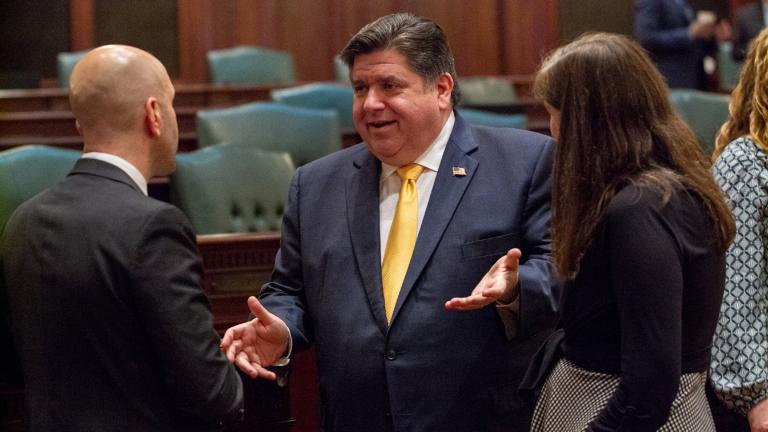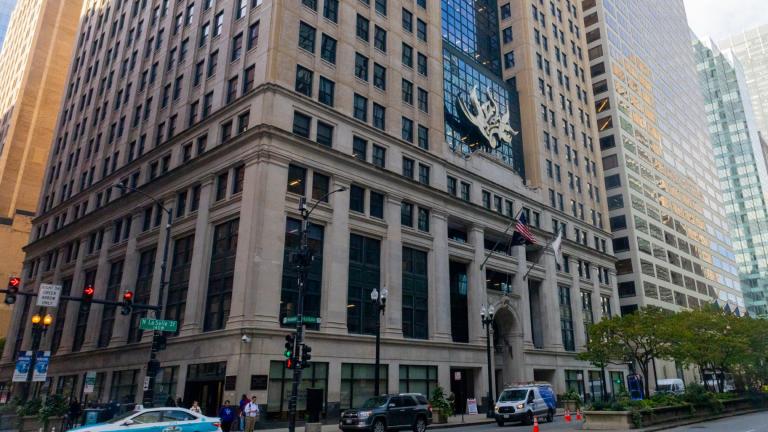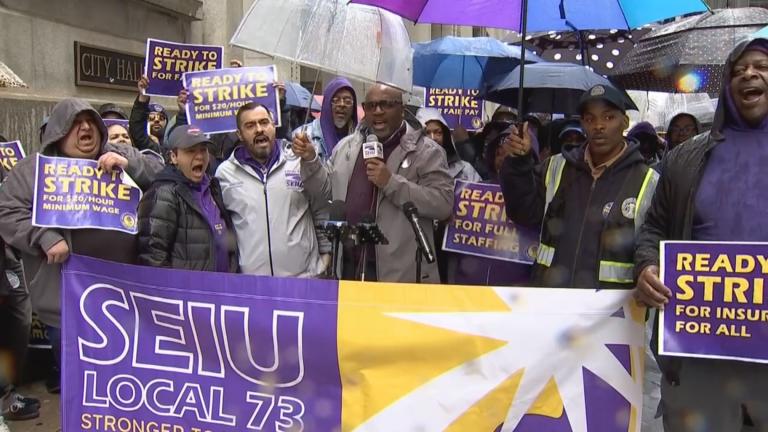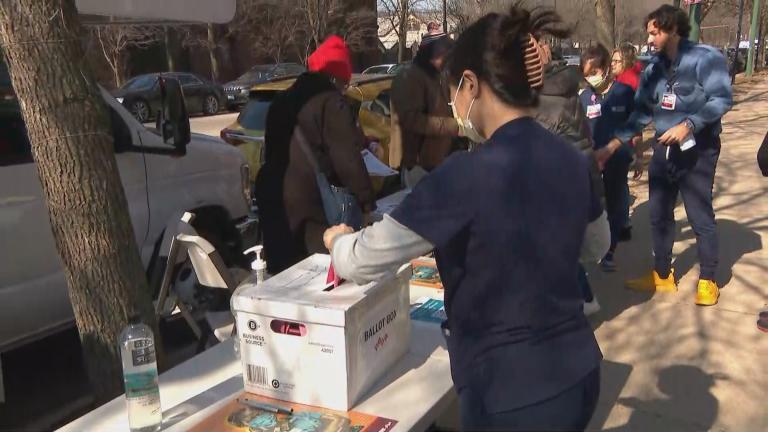The Chicago City Council voted 41-2 Wednesday to make it easier for workers at Chicago nonprofit organizations to unionize, defying Mayor Lori Lightfoot’s administration and a coalition of social service agencies.
After languishing in limbo for more than three years, the proposal — dubbed the Human Service Workforce Advancement Ordinance — was approved with a veto-proof majority and no substantive debate. Ald. Tom Tunney (44th Ward) and Ald. Brian Hopkins (2nd Ward) voted against the measure, while several other City Council members left the chamber just before the vote took place.
Roberta Lynch, the president of American Federation of State, County and Municipal Employees Council 31, known as AFSCME, hailed the vote as a victory for the underpaid and underprotected employees of nonprofit organizations.
“This is a matter of justice and equity for workers — most of them women, many of them Black and Brown — when they choose to come together and make things better for themselves and the people they serve,” Kaplan said in a statement.
However, representatives of a coalition of social service agencies said they were disappointed by the vote they said will hurt the ability of nonprofit organizations to stretch their limited budgets to meet the growing need for social services in the aftermath of the COVID-19 pandemic and at a time of high inflation.
“We have serious concern that many providers will opt out of providing city services because they cannot afford these investments and will not have the legal or operational expertise to navigate federal law,” the Chicago Alliance for Collaborative Effort, a coalition of 44 social service agencies, said in a statement. “As a result, Chicago residents will have fewer resources at a time when they are needed most.”
Dr. Allison Arwady, the commissioner of the Department of Public Health, had urged City Council members to delay a vote on the proposal, saying it could have unanticipated consequences that could disrupt the organizations that make up the city’s social safety net.
The proposal would require human service organizations that contract with the city and have more than 20 employees to agree not to fight efforts by their employees to unionize as long as workers agree not to disrupt the company’s operations while they organize.
Federal and state laws protect employees’ ability to unionize, but managers and owners can push back against those efforts and urge their employees not to join a union.
The ordinance includes an exemption for hospitals.
City officials unanimously demanded that similar pacts, known as a labor peace agreements, be in place before the city approved Bally’s plan to build a casino in River West on land now occupied by the Chicago Tribune. In 2017, the City Council approved a measure requiring firms doing business at O’Hare and Midway airports to allow their employees to join a union and pay them more than the city’s minimum wage at the time.
The measure gained momentum in the weeks before the Feb. 28 election amid the continuing debate over Lightfoot’s decision to break her 2019 campaign promise to reopen the mental health clinics closed by former Mayor Rahm Emanuel in 2011. Instead, Lightfoot worked to fill “significant gaps” in Chicago’s mental health care system by turning to nonprofit organizations to deliver needed care.
While Lightfoot and Arwady said nonprofit organizations provided the same quality mental health care to Chicagoans as publicly run clinics, progressive members of the City Council strenuously objected.
Contact Heather Cherone: @HeatherCherone | (773) 569-1863 | [email protected]







